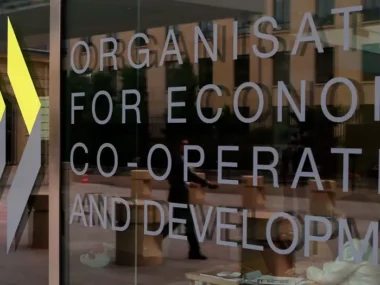The British Business Bank (BBB), which is government-owned, has shifted to an annual pre-tax deficit exceeding £147 million.
The British Business Bank (BBB), a state-owned economic development lender, has reported an annual pre-tax loss of over £147 million, attributing this to broader economic challenges impacting the valuation of businesses in which it has invested.
Despite the challenging economic climate, the bank emphasized that it entered into funding agreements totaling £1.6 billion during the year.
Established in 2014 with the aim of providing financial support to smaller UK businesses, the BBB saw a decrease of £146 million, or 5%, in the value of its investments in the 12 months ending in March. This contrasts with a gain of £619 million in the previous year.
The global tech sector witnessed declining valuations in recent months due to investor concerns arising from increasing borrowing costs and sluggish economic growth.
BBB’s CEO, Louis Taylor, expressed confidence in the long-term outlook, citing the 10-year horizon for most of their investments and expecting an overall upward trajectory despite annual fluctuations.
The bank has provided funding to more than 90,000 businesses, surpassing its £10.7 billion target, with a total funding portfolio of £12.4 billion, excluding Coronavirus loans it administered.
Notably, the BBB played a crucial role in administering the government’s COVID-19 loan schemes and the Future Fund, collectively delivering over £80 billion in finance to nearly 1.7 million businesses. These schemes are no longer accepting new applications.
The Future Fund faced scrutiny for investing taxpayer funds in entities like Bolton Wanderers Football Club and event organizer Killing Kittens.
The Start Up Loans program operated by the bank has reached a milestone of £1 billion in lending, with more than half directed toward businesses owned by women and ethnic minorities. This initiative aims to assist underrepresented groups and regions outside of London and the southeast, as they often encounter challenges accessing mainstream lenders. Most of the program’s funding originates from sources beyond the UK’s major banks.











